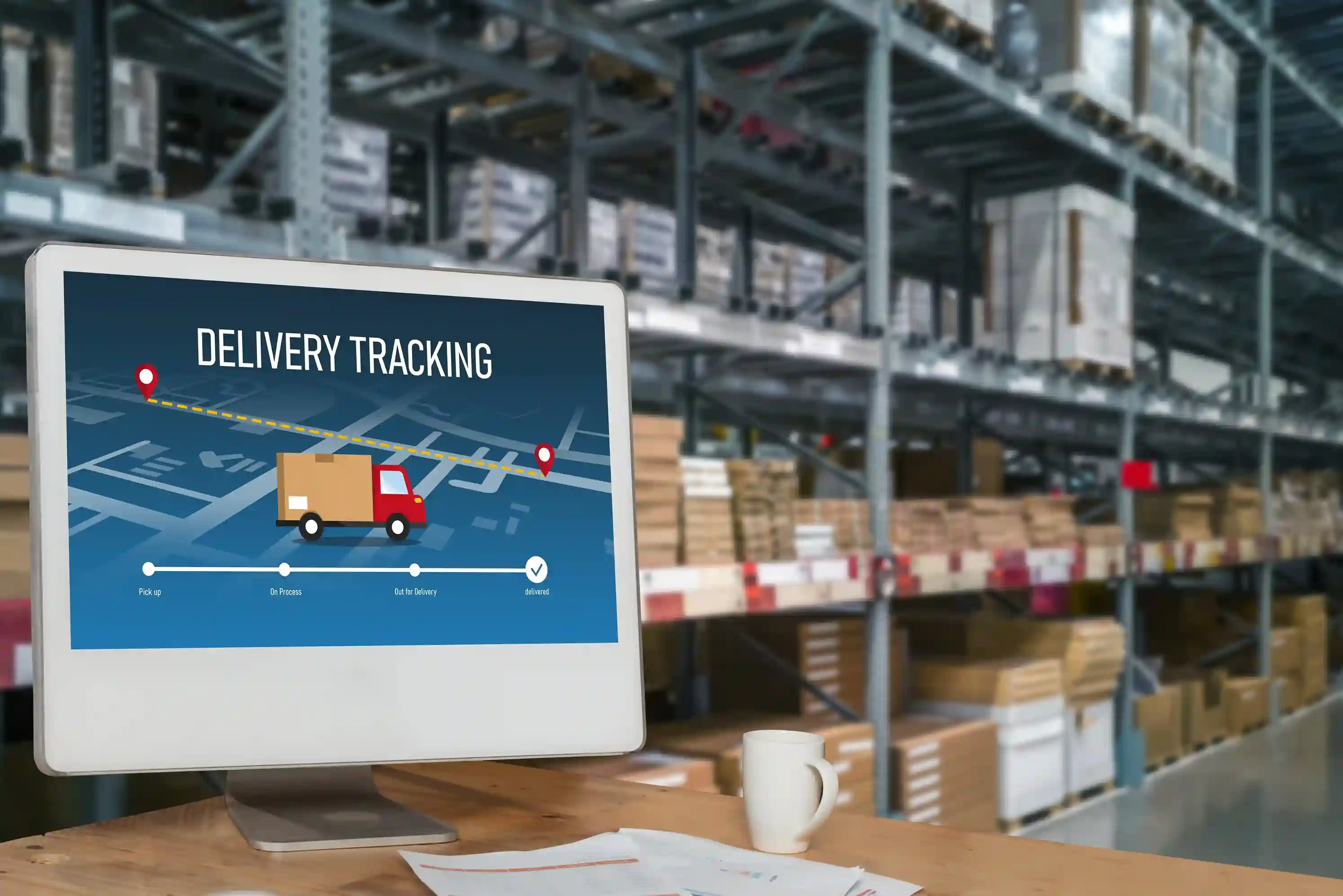Powering Seamless Logistics: How ICTechnology Supports the Moving Industry

The moving and logistics industry is always on the move — yet recently, that road seems quicker, more intense, and increasingly challenging than before. Delivery windows are getting tighter, fuel expenses are increasing, and customers now anticipate real-time updates as a standard rather than an extra bonus.
The challenge? Maintaining efficiency, compliance, and a strong customer focus when time is limited.
Every successful delivery involves much more than just a truck and a driver. It’s a linked network of digital systems, data, and coordination that makes sure everything operates smoothly. When those systems break down — due to outdated tools, lack of backup, or miscommunication — the consequences can be serious.
That’s why innovative logistics and moving companies are adopting technology not just for convenience, but for why they exist.
Why the Moving Industry Needs Smarter Systems
The moving industry relies heavily on accuracy and timing. However, even the most experienced professionals are coming to understand that traditional methods — such as phone updates, spreadsheets, and paper logs — just cannot compete with the speed of today’s requirements.
Every delivery presents a challenge, dealing with time, traffic, and the demands of those waiting for their packages. Manual scheduling frequently results in missed time slots or inefficient use of vehicles. Poor route planning can lead to wasted hours on the road and higher fuel costs. Without real-time communication between drivers and dispatchers, customer satisfaction can rapidly drop.
An intelligent system smoothly integrates all these components into a single flow, connecting data, users, and processes. It leverages automation to remove mistakes, employs analytics to enhance performance, and uses cloud storage to protect operations.
Integrating technology into daily logistics allows businesses to react faster, plan more effectively, and function with full transparency.
The Pressure Points: What’s Slowing Logistics Down
Even experienced logistics companies face challenges that slow their growth and operational efficiency. These pressure points may seem minor, but they grow fast across many daily tasks.
- Manual Scheduling: Relying on outdated systems or spreadsheets complicates the management of automobile capacity, leading to inefficiencies and idle time.
- Unoptimised Routes: Without real time mapping and data, drivers risk wasting time stuck in traffic or making poor routing choices.
- Limited Visibility: Fleet tracking can frequently be disconnected, leaving operators uncertain about the locations of vehicles and their operational efficiency.
- Compliance Overload: With the rise of digital regulatory checks, vehicle safety records, and documentation, missing records can lead to expensive penalties.
- Customer Communication: Clients today demand real-time tracking and immediate updates, yet numerous companies continue to depend on phone calls or lagging reports.
Every one of these friction points leads to downtime, increases costs, and damages trust — both within the organisation and with customers. In the world of logistics, your reputation holds everything.
In the absence of digital systems, even the most successful business may struggle to keep up with its competitors.
The Digital Advantage: From Chaos to Coordination
Digital transformation goes beyond just staying ahead of the competition; it’s about regaining control. When logistics teams move from manual management to a digital business strategy, they transform inefficiency into smooth coordination.
Automation guarantees that tasks such as scheduling, maintenance reminders, and reporting are executed quickly and with precision. Cloud platforms empower teams to access files, routes, and delivery data from virtually anywhere. Analytics tools reveal trends that help in minimizing waste, improving safety, and forecasting demand.
For drivers, this translates to simpler routes, quicker updates, and reduced confusion. For managers, this translates to immediate knowledge and control of every aspect of the operation. For customers, this translates to transparency and reliability — essential elements that develop loyalty and encourage repeat business.
A carefully built digital system improves human capabilities rather than replacing them. It equips your team with the resources to increase efficiency, improve decision-making, and ensure on time deliveries.
Why It Matters Now
The logistics landscape is undergoing quick transformations, and companies that fail to adapt may find themselves left behind.
Delays are becoming increasingly Define your vision of success — whether it’s quicker deliveries, reduced errors, increased visibility, or improved customer communication.expensive as fuel prices and operational expenses keep reducing and already on thin margins. Clients are seeking not just quicker service but also more sustainable and responsible operations. Each delay, missed update, or unmonitored asset slowly destroys customer trust and impacts on business growth.
Across various sectors, technology has changed expectations — and logistics appears to be the next big thing. In today’s world, digital proof of delivery, automated delivery, and predictive maintenance have become standard practices, highlighting the power of innovation in the industry.
Implementing more intelligent systems today ensures that your business is ready for whatever the future holds. This allows you to stay ahead of market shifts, regulatory changes, and customer demands, ensuring you’re never left trying to catch up.
In simple terms — delaying updating brings greater risks than making early improvements.
How to Start Your Digital Journey
Shifting from manual processes to digital business innovation services can be a smooth journey. It’s about making thoughtful moves, not rushing into big decisions.
Here’s a starting point for logistics businesses:
- Evaluate your current workflow. Identify the areas where delays or miscommunication happen most often.
- Set clear goals. Decide what success looks like — faster deliveries, fewer errors, improved visibility, or better customer communication.
- Adopt cloud-based tools. Move away from local storage to cloud offsite backup solutions that secure your data and make it accessible anywhere.
- Automate repetitive tasks. Automation improves processes from scheduling to reporting, saving time and minimizing manual errors.
- Train your team. The success of any system depends on user confidence. Invest in digital literacy and change management.
- Partner with experts. Choose an IT provider who understands both the technical and operational sides of logistics.
By sticking to a well-defined approach, logistics firms can embrace digital transformation effectively — reducing interruptions while improving long-term benefits.
How ICTechnology Keeps Logistics Moving
At ICTechnology, we understand that logistics operates most efficiently when technology seamlessly supports it — robust, secure, and consistently reliable. We provide solutions designed to assist moving companies throughout every step of their operations, enabling a shift from reactive to proactive management.
Here’s how:
1. Cloud Storage and Backup for Business Continuity
Every logistics company deals with sensitive data — from client contracts to route maps and vehicle logs. Losing even a portion of that data can cause chaos. ICTechnology offers cloud offsite backup solutions that ensure your business-critical information is safe, accessible, and easily recoverable.
Whether it’s customer data, compliance reports, or route documentation, our cloud solutions help companies maintain operations even when unexpected disruptions strike — from hardware failures to cyber incidents.
It’s not just about protection; it’s about continuity. With automatic data backups, encrypted transfers, and scalable storage, businesses can focus on moving goods, not managing servers.
2. Fleet and Route Management Integration
Efficiency starts with visibility. ICTechnology helps logistics teams implement integrated systems that combine GPS tracking, route optimisation, and vehicle health monitoring.
The outcome? Better scheduling, reduced fuel expenses, and improved delivery efficiency. Connecting data across systems allows dispatchers to make informed, real-time decisions. They can reroute drivers when traffic arises, flag maintenance issues before breakdowns occur, and improve overall effectiveness of assets.
3. Digital Business Strategy and Systems Design
Technology goes beyond just buying software; it requires developing an integrated strategy. ICTechnology collaborates with logistics companies to create customized digital frameworks that align with their size, objectives, and operational processes.
From ERP integration to automated scheduling, we assist businesses in developing a digital business strategy that develops with them — rather than against them.
That includes:
- Selecting and integrating scalable tools
- Automating repetitive tasks
- Digitising compliance and documentation
- Streamlining communication channels
This ensures every hour and every kilometre counts.
4. Cloud Collaboration and Communication Tools
In logistics, communication flows in multiple directions — it’s a web of connections. ICTechnology provides teams with collaborative tools that enable managers, drivers, and clients to remain connected across various devices and locations.
From real-time job updates via Microsoft Teams to shared route documents in OneDrive and automated notifications through cloud-based systems, smooth communication minimises errors and improves the customer experience.
5. Cybersecurity and Data Protection
With the rise of digital logistics, the threats to cyber security are on the rise. One breach can reveal customer data, throw schedules into chaos and lead to significant financial setbacks.
ICTechnology delivers comprehensive security with innovative cyber security solutions, robust authentication, and constant monitoring. This guarantees that all digital interactions — from fleet management systems to customer portals — stay protected against outside threats.
6. Managed IT Support for Round-the-Clock Operations
Logistics downtime goes beyond just an inconvenience; it comes with a large cost. ICTechnology provides 24/7 IT support Sydney, guaranteeing that systems stay dependable and efficient, even during the busiest times.
Our skilled technicians oversee and improve the IT infrastructure, prevent issues before they grow, and offer expert advice for continuous improvement.
In logistics, every second is crucial.
Moving Forward, Digitally
The logistics industry is built on movement — but the smartest companies are learning that true progress starts with digital direction.
Technology has become the difference between reacting to problems and preventing them. Between surviving today’s challenges and shaping tomorrow’s opportunities.
With the right systems in place, logistics businesses can achieve more than efficiency — they can achieve resilience. They can handle higher volumes, maintain client trust, and scale without chaos.
At ICTechnology, we believe that seamless logistics begins with seamless systems. Whether through a strong digital business strategy, cloud offsite backup solutions, or continuous IT support, we help you build the infrastructure that moves your business forward — securely, intelligently, and confidently.
Because in logistics, staying still is never an option.
Interested in a Quote and Consultation? Reach out to:
[email protected]
Need Support on Logistics or Moving Industry? Please reach out!
[email protected]
Any other enquiries?
Fill out our Contact Form here.
References
Deloitte. (2023). How technology is reshaping logistics operations. Deloitte Insights. Retrieved from: https://www.deloitte.com
IBM. (2024). Digital transformation in logistics: AI, cloud, and automation trends. IBM Global Report. Retrieved from: https://www.ibm.com
PwC. (2023). The future of logistics: Real-time, data-driven and customer-centric. PwC Insights. Retrieved from: https://www.pwc.com
Statista. (2024). Fuel price index and logistics cost analysis 2024. Retrieved from: https://www.statista.com
Transport and Infrastructure Report. (2024). Modern logistics: Digital innovation and delivery efficiency. Global Research Institute. Retrieved from: https://www.globalresearchinstitute.com





